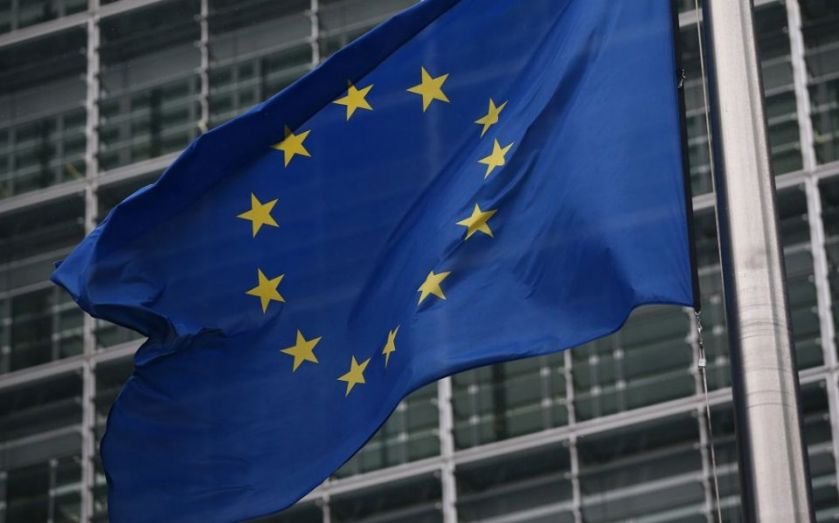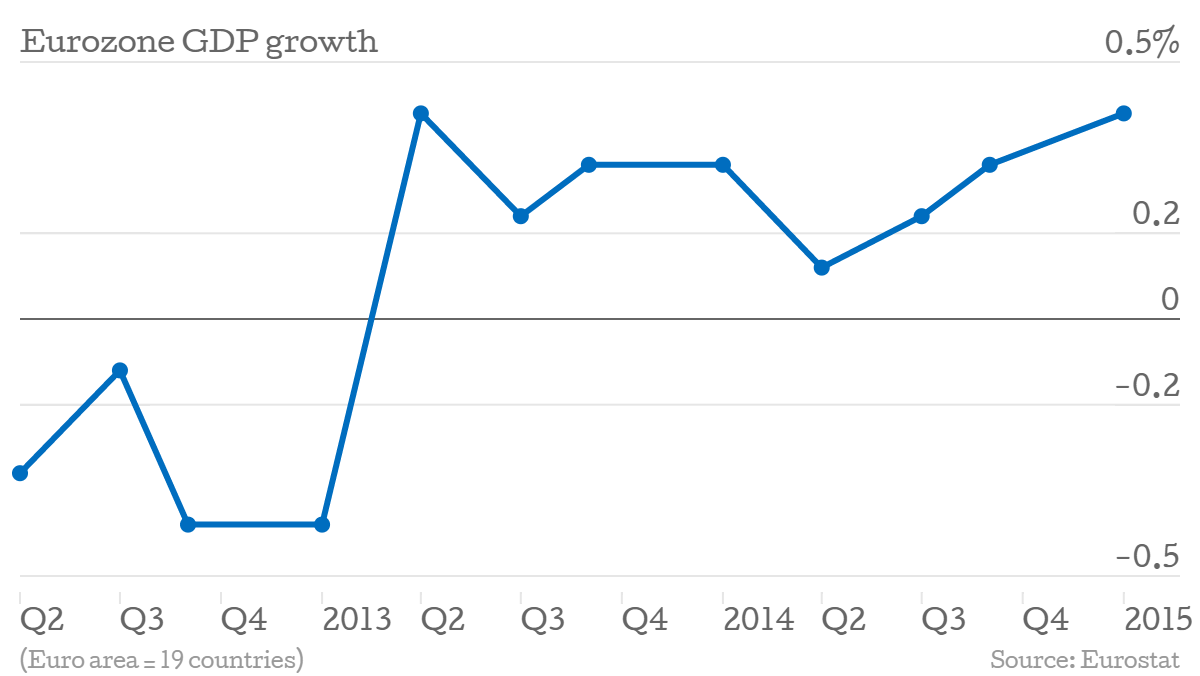Eurozone economic growth beat the UK in the first quarter of 2015

The Eurozone economy grew at a faster rate than the UK's during the first quarter of this year, topping off a stream of recent data suggesting the bloc is emerging from a long period of stagnation.
Official statistics agency Eurostat said GDP rose 0.4 per cent across the euro area, towards the bottom of analyst estimates, but up from 0.3 per cent in the last quarter of 2014.
"No details were released of the component breakdown of first quarter Eurozone gross domestic product, but it is evident that improved growth was due to strengthened domestic demand," Howard Archer, chief economist at IHS, said.
The European Commission last week revised its forecast for economic growth this year to 1.5 per cent, up from 1.3 per cent, and a significant gain on the 0.9 per cent posted last year. And by 2016 the European Commission expects the Eurozone economy to grow by 1.9 per cent.
It will be helped by increased domestic demand as low oil prices give households more spending power.
The European Central Bank's (ECB) stimulus package – through which it will buy €1.1 trillion of government bonds by September 2016 – will also be a boon. This is driving down interest rates as well as the euro, making Euro area businesses more competitive internationally.
Nevertheless, policymakers still have to contend with persistently high unemployment, and high government and corporate debt burdens, as well as weak investment spending.
Earlier today official data showed the euro area's former sick man France's economy sped ahead of Germany and Britain in the first quarter of 2015.
France's economy grew 0.6 per cent in the first quarter, beating analyst expectations for a 0.4 per cent rise.
Meanwhile Germany's economy grew 0.3 per cent in the first quarter, below analyst expectations of 0.5 per cent and less than the 0.7 per cent posted in the last quarter of 2014.
The Commission has said it expects France's economy to grow 1.1 per cent this year. Meanwhile, better-than-expected growth pushed it to trim estimates for the country's budget deficit to 2.8 per cent of GDP in 2015, down from the February forecast of 4.1 per cent.
Additionally, it raised its forecast for Germany to 1.9 per cent from 1.5 per cent for 2015, saying domestic consumption, the strong job market, immigration and low interest rates will drive growth.